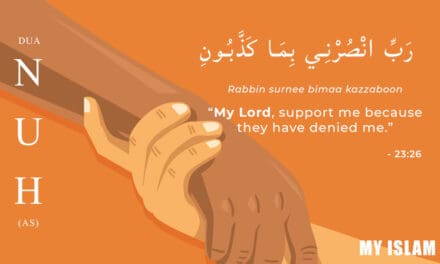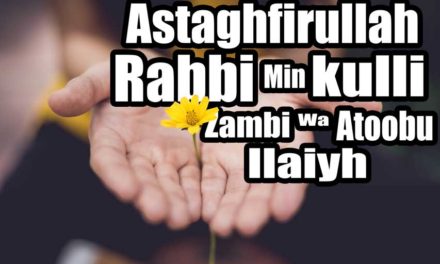The dua that begins with allahumma inna nasta inuka is known as dua e-qunoot or dua qunut.
The supplication is made while standing in Islam during witr prayer.
This is often regarded as sunnah of the Prophet and is recommended but not neccessary.
Ahmad, Muhammad ibn Isa at-Tirmidhi, and Abu Dawood all recorded that Hasan ibn Ali (the eldest son of Imam Ali) learned the prayer from Muhammad.
There is some debate as to whether this should be said before going into ruku or after bowing. The general ruling among scholars of hadith say both are allowed because both are mentioned in authentic hadees.
But widely, the scholars of Islam and the regular practice at Masjid al-Haram, Mecca, is to recite the Qunut Prayer after getting up from Ruku as there are more mentions of this.
allahumma inna nasta inuka full dua
Here is the full dua in Arabic text,
اللهم إنا نستعينك ونستغفرك ونؤمن بك ونتوكل عليك ونثني عليك الخير ونشكرك ولا نكفرك ونخلع ونترك من يفجرك اللهم إياك نعبد ولك نصلي ونسجد وإليك نسعى ونحفد ونرجو رحمتك ونخشى عذابك إن عذابك بالكفار ملحق
Allahumma inna nasta inuka wa nastaghfiruka, wa nu’minu bika wa natawakkalu ‘alaika wa nuthni ‘alaikal khair, wa nashkuruka wa la nakfuruka wa nakhla’u wa natruka manyyafjuruka, allahumma iyyaka na’budu , wa laka nusalli wa nasjudu wa ilaika nas’a wa nahfidu wa narju rahmataka wa nakhsha ‘adhabaka inna ‘adhabaka bil kaffari mulhiq.
English Translation:
O Allah! Truly we seek Your help and Your forgiveness and believe in You and praise You for all good. We thank You and are not ungrateful to You and submit ourselves to you and surrender and abandon all who reject You. O Allah You alone we worship. We pray and prostrate to You. We strive and struggle in Your Way. We hope for Your mercy and fear Your harsh punishment. Certainly Your punishment encircles the rejectors.
Authentic Dua E-Qunoot According to Hadith:
In Witr prayers, recite Surah Fatiha and some other verses from the Quran. Before or after Ruku of the last Rakat raise your hands high up to the level of the shoulders and supplicate the dua qunoot with your hands raised:
In three separate hadith narrated by Abu Dawood 1425, At-Tirmidhi 464, and Sunan An Nasai 1746 you could recite this dua for witr as well.
Narrated Al-Hasan ibn Ali:
The Messenger of Allah (ﷺ) taught me some words that I say during the witr. (The version of Ibn Jawwas has: I say them in the supplication of the witr.) They were: “O Allah, guide me among those Thou hast guided, grant me security among those Thou hast granted security, take me into Thy charge among those Thou hast taken into Thy charge, bless me in what Thou hast given, guard me from the evil of what Thou hast decreed, for Thou dost decree, and nothing is decreed for Thee. He whom Thou befriendest is not humbled. Blessed and Exalted art Thou, our Lord.”
Grade: Sahih (Al-Albani)
Reference: Sunan Abi Dawud 1425
Here’s the dua in Arabic according to hadith above:
اللَّهُمَّ اهْدِنِي فِيمَنْ هَدَيْتَ وَعَافِنِي فِيمَنْ عَافَيْتَ وَتَوَلَّنِي فِيمَنْ تَوَلَّيْتَ وَبَارِكْ لِي فِيمَا أَعْطَيْتَ وَقِنِي شَرَّ مَا قَضَيْتَ إِنَّكَ تَقْضِي وَلاَ يُقْضَى عَلَيْكَ وَإِنَّهُ لاَ يَذِلُّ مَنْ وَالَيْتَ وَلاَ يَعِزُّ مَنْ عَادَيْتَ تَبَارَكْتَ رَبَّنَا وَتَعَالَيْتَ
The Transliteration of this dua is:
Allaahumma ihdini feeman hadayta wa ‘aafini feeman ‘aafayta wa tawallani feeman tawallayta wa baarik li feema a’tayta, wa qini sharra ma qadayta , fa innaka taqdi wa la yuqda ‘alayk, wa innahu laa yadhillu man waalayta wa laa ya’izzu man ‘aadayta, tabaarakta Rabbana wa ta’aalayta
In An-Nasai there is an addition at the end of this Qunut: “وصلى الله على النبي محمد”. Transliteration Laa manja minka illa ilayka which means “There is no place of safety from You except with You”. This was narrated by Ibn Mandah in al-Tawheed and classified as hasan by Al-Albani.
After reciting this, say: “Allahu Akbar” and bow down and complete the rest of prayer like other prayers.





